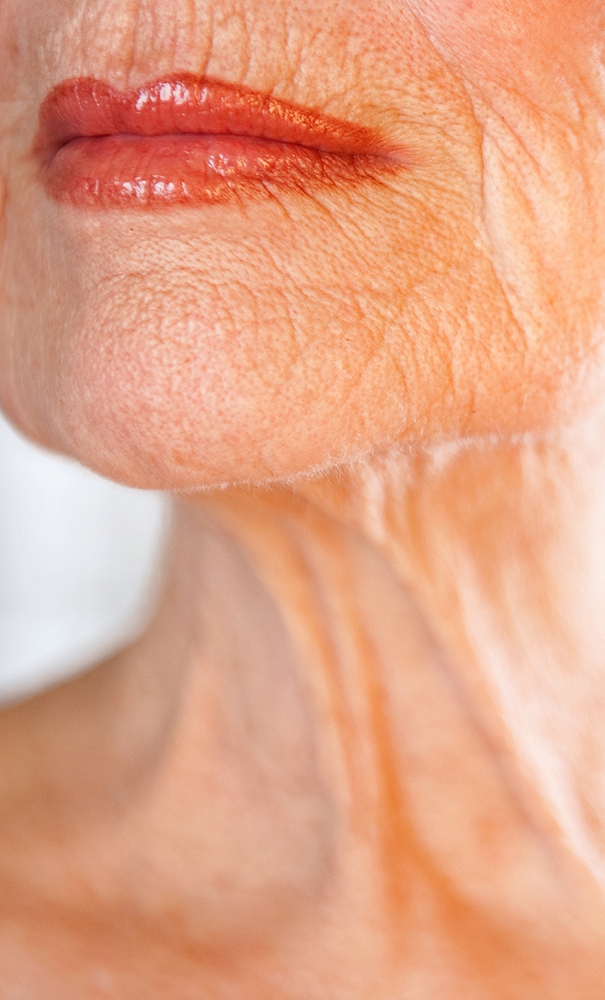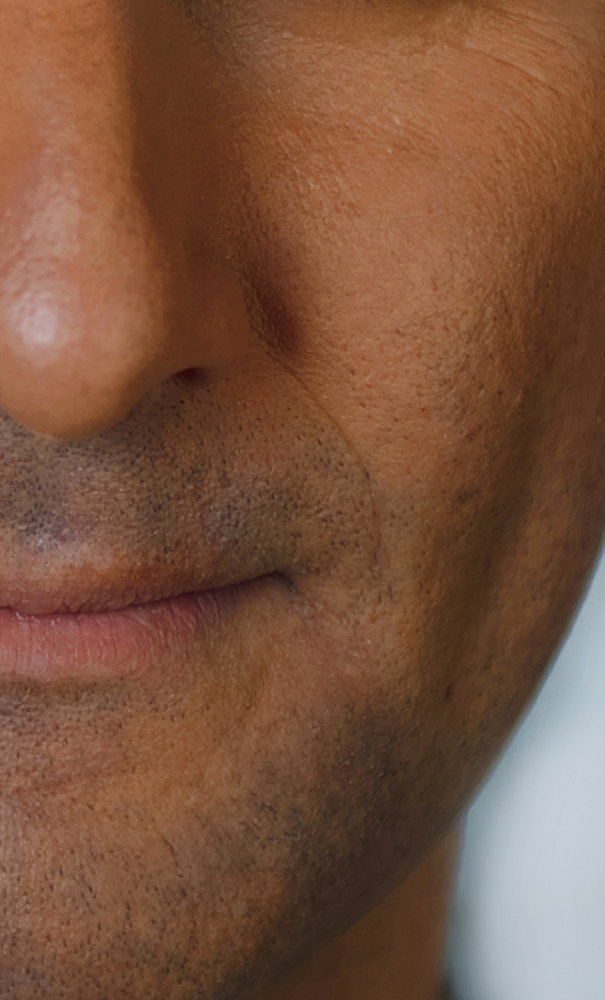







Clinical research studies are critical to the development and evaluation of new medications for people living with skin disease. Since 2000, Innovaderm has conducted numerous clinical trials to advance research for a wide range of dermatological indications. By choosing to participate* in one of our studies, you are directly contributing to the discovery of novel therapies and helping people with skin conditions around the world gain access to these potentially life-changing treatments.
*You may be compensated financially for your time and any inconveniences related to your participation in a study.
To determine your eligibility for participation in a study, we require certain information, which can be obtained via phone or an online form. Should you be deemed qualified to proceed to the next step, you will receive an appointment for an in-person evaluation at our study center.
During the in-person evaluation at our study center, our medical staff will perform a physical examination to confirm your eligibility for the study in which you wish to participate. If so, you will then be scheduled for your first study appointment. If not, you may be referred to another study by our team.
Throughout the study, it is important to follow the instructions you receive from our team and not miss any of your scheduled visits. You will be closely monitored by our health professionals to make sure that everything is going well. Should you have any concerns or questions, our team will be happy to assist you.
You have successfully contributed to the study; congratulations! Do not hesitate to share your experience as a participant with our team, your family, friends or colleagues. Should you be interested in participating in another study, you may contact our team or visit our website for available studies in your area.
“Great experience, very nice and professional people, with great respect and values.”
- Study participant
“I am proud to contribute to research for a skin condition that has affected me for a long time.
Good staff, efficient and organized.”
- Study participant
"It allows me to learn more about my condition and contribute to research."
- Study participant
Expand AllCollapse All
All clinical studies have guidelines about who can participate. The use of inclusion/exclusion criteria is an important principle of clinical research that helps to produce reliable results. The factors that allow someone to participate in a clinical study are called “inclusion criteria” and those that disallow someone from participating are called “exclusion criteria”. These criteria are based on such factors as age, gender, the type and stage of a disease, previous treatment history, and other medical conditions. Before joining a clinical study, a subject must first qualify for the study. Some research studies seek subjects with illnesses or conditions to be studied in the clinical study, while others need healthy subjects. It is important to note that inclusion and exclusion criteria are not used to reject people personally. Instead, the criteria are used to identify appropriate subjects and keep them safe. The criteria help ensure that researchers will be able to answer the questions they plan to study.
Clinical studies are designed and executed to allow eligible subjects to:
There are risks to clinical studies, including:
People should know as much as possible about the clinical study and feel comfortable asking the members of the healthcare team questions about it and the care expected while in a study. The following questions might be helpful for the subject to discuss with the healthcare team. Some of the answers to these questions are found in the informed consent document.
The ethical and legal codes that govern medical practice also apply to clinical studies. In addition, most clinical research is federally regulated with built-in safeguards to protect the subjects. The study follows a carefully controlled protocol, a study plan which details what researchers will do in the study. As a clinical study progresses, researchers report the results of the study to various government agencies and ethics boards. Individual subjects’ names will remain confidential and will not be mentioned in these reports.
Before agreeing to participate in a clinical study, one should first examine all available information on the study and, where appropriate, on the drug administered. This information is presented in a written document, also known as the informed consent form, given to each person who wishes to participate in the clinical study. This form includes information about the study, such as its purpose, duration, required procedures, and key contact persons. The risks and potential benefits are explained in the informed consent form. The subject then decides whether or not to sign the document. The informed consent form is not a contract, and the subject may withdraw from the study at any time.
Side effects are any undesired actions or effects of the experimental drug or treatment. Negative or adverse effects may include headache, nausea, skin irritation, or other physical problems. Experimental treatments must be evaluated for both immediate and long-term side effects.
Some clinical studies are only carried out to evaluate harmlessness (safety) and tolerance of certain products. Other clinical studies also aim at evaluating the effectiveness of the products. Some information on the effectiveness of the products being studied is found in the informed consent form.
Financial compensation is offered to clinical study volunteers for traveling expenses and the time allocated to their participation in the study. This amount is usually sent by mail a few weeks after the end of the clinical study when all visits are completed, depending on your study site.
The subject’s participation is important to us so that we can collect data on the investigational product in the target population. However, a subject has the right to leave a clinical trial at any time, without justification and without penalty or loss of benefits attributed to him, even if he has already signed the consent form. By withdrawing from the study, the subject should give his renunciation to the research team. The subject will be compensated for the visits and could be recalled later for long-term monitoring for safety reasons.
A clinical trial involving an experimental product (i.e. never marketed in Canada before) may start only once Health Canada approval and authorization from the ethics committee are obtained.
Health Canada is a government agency whose mission is to improve and maintain the health of Canadians. Their evaluations focus on the product, the rationale of the study and examinations to be carried during the study.
The Ethics Committee independently reviews all the ethical aspects of the study to protect the rights and well-being of research subjects.
Any change to the study must be approved by an ethics committee and, depending on the type of change, Health Canada before being implemented.
It is the duty of the pharmaceutical company, Innovaderm and the study doctor to report to the ethics committee and to Health Canada any new information that may have an impact on the approval of the study or the well-being of the subject.
Before starting a clinical trial, a form confirming the selection of the study doctor must be forwarded to Health Canada. This document states that the physician will conduct the study in accordance with Good Clinical Practice (GCP), a standard that ensures that the rights, the safety and well-being of subjects are respected. Moreover, in order to monitor and ensure compliance of GCP and compliance with legal requirements, inspections at clinical sites can be conducted at any time by a government agency, either domestic or foreign.
